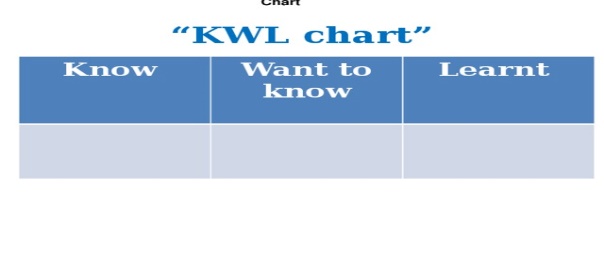
|
Unit of a long term plan: Values |
School: |
||
|
Date: |
Teacher name: |
||
|
Grade: 5 |
Number present: |
absent: |
|
|
Lesson title |
A day at school |
||
|
Learning objectives |
5.2.1.1 understand a sequence of supported classroom instructions 5.3.3.1 give an opinion at sentence level on a limited range of general and curricular topics 5.4.6.1 recognise the attitude or opinion of the writer in short texts on a limited range of general and curricular topics |
||
|
Lesson objectives |
Learners will be able to: • Learn and practise verbs talking about school subjects. |
||
|
Plan |
|||
|
Stages / Time |
Teachers’ actions |
Students’ actions |
Assessment criteria |
Resources |
|
||||
|
Start |
Organization moment 1.Greeting. Ask about the weather. Warm-up • Books closed. Write three true or false sentences on the board about the school. For example: Classes always start at 9 a.m. We never have English class on Wednesday. We sometimes watch films in class. • In pairs, students decide if the sentences are true or false. If they are false, ask them to correct them. Lead – In
The family that readers first met in Picture My Day is growing up! Summer holidays are over, and the siblings are ready for their first day of school -- the youngest is off to daycare, the middle child is beginning kindergarten, and the oldest is starting first grade. From shopping for school supplies and getting back-to-school haircuts to meeting new teachers and classmates, these three children -- and readers along with them -- each experience different ways of preparing for and spending a day at school. |
The aim: To develop Ss speaking skills and create friendly atmosphere Efficiency: By telling the wishes they show their appreciations . Students say about a day at school. What time does the school start and end. |
At the organization moment T tries to award active Ss. «The praise» method is used to evaluate Ss with phrases like: “Good job! Well done!” Formative Assessment
Good job! |
Pictures Student’s book |
|||||
|
Main part |
Ex: 1 P: 70 Refer students to page 82 of the Workbook and ask them to look through the school subjects. Check for understanding, and ask students to translate the subjects into their own language Differentiation: «Verbal support» method is used to help Students use new words in the text. Ex: 2 P:70 • Draw students’ attention to the photo and ask them what they can see. Elicit that there are students in a classroom, and that one of the students looks older. • Explain the task. Focus students on the text and play the recording. Ex: 3 P:70 • Refer students to the sentences 1–5. • Explain the task. In a weaker class, ask students to underline the parts of the text that helped them find their answers. • Students check answers in pairs. Check answers as a class. Ask fast finishers to correct the false sentences. |
Students look at the school subjects and discuss. ANSWERS: Students own answers Students read and listen to the text. Which subjects are difficult for Paul. ANSWERS: ICT and French are difficult for Paul. Students read the text again and write true or false for each sentense ANSWERS: 1 False: Paul is Matt’s father. 2 False: Mrs Murphy teaches maths. 3 True 4 True 5 False: The French teacher doesn’t speak English in class. |
Assessment criteria -Learn and practise verbs talking about school subjects. Descriptor: - look at the school subjects and discuss. Peer assessment: answer key Assessment criteria: - Understand an article about school. Descriptor: - read and listen to the text. Which subjects are difficult for Paul. Make CCQ questions Yes / No |
Cards Worksheets |
|||||
|
End |
Home task: Ex: 2 P: 42 WB |
|
Students use their stickers to show their knowledge according to the lesson. |
Poster KWL chart |
|||||
жүктеу мүмкіндігіне ие боласыз
Бұл материал сайт қолданушысы жариялаған. Материалдың ішінде жазылған барлық ақпаратқа жауапкершілікті жариялаған қолданушы жауап береді. Ұстаз тілегі тек ақпаратты таратуға қолдау көрсетеді. Егер материал сіздің авторлық құқығыңызды бұзған болса немесе басқа да себептермен сайттан өшіру керек деп ойласаңыз осында жазыңыз
A day at school
A day at school
|
Unit of a long term plan: Values |
School: |
||
|
Date: |
Teacher name: |
||
|
Grade: 5 |
Number present: |
absent: |
|
|
Lesson title |
A day at school |
||
|
Learning objectives |
5.2.1.1 understand a sequence of supported classroom instructions 5.3.3.1 give an opinion at sentence level on a limited range of general and curricular topics 5.4.6.1 recognise the attitude or opinion of the writer in short texts on a limited range of general and curricular topics |
||
|
Lesson objectives |
Learners will be able to: • Learn and practise verbs talking about school subjects. |
||
|
Plan |
|||
|
Stages / Time |
Teachers’ actions |
Students’ actions |
Assessment criteria |
Resources |
|
||||
|
Start |
Organization moment 1.Greeting. Ask about the weather. Warm-up • Books closed. Write three true or false sentences on the board about the school. For example: Classes always start at 9 a.m. We never have English class on Wednesday. We sometimes watch films in class. • In pairs, students decide if the sentences are true or false. If they are false, ask them to correct them. Lead – In
The family that readers first met in Picture My Day is growing up! Summer holidays are over, and the siblings are ready for their first day of school -- the youngest is off to daycare, the middle child is beginning kindergarten, and the oldest is starting first grade. From shopping for school supplies and getting back-to-school haircuts to meeting new teachers and classmates, these three children -- and readers along with them -- each experience different ways of preparing for and spending a day at school. |
The aim: To develop Ss speaking skills and create friendly atmosphere Efficiency: By telling the wishes they show their appreciations . Students say about a day at school. What time does the school start and end. |
At the organization moment T tries to award active Ss. «The praise» method is used to evaluate Ss with phrases like: “Good job! Well done!” Formative Assessment
Good job! |
Pictures Student’s book |
|||||
|
Main part |
Ex: 1 P: 70 Refer students to page 82 of the Workbook and ask them to look through the school subjects. Check for understanding, and ask students to translate the subjects into their own language Differentiation: «Verbal support» method is used to help Students use new words in the text. Ex: 2 P:70 • Draw students’ attention to the photo and ask them what they can see. Elicit that there are students in a classroom, and that one of the students looks older. • Explain the task. Focus students on the text and play the recording. Ex: 3 P:70 • Refer students to the sentences 1–5. • Explain the task. In a weaker class, ask students to underline the parts of the text that helped them find their answers. • Students check answers in pairs. Check answers as a class. Ask fast finishers to correct the false sentences. |
Students look at the school subjects and discuss. ANSWERS: Students own answers Students read and listen to the text. Which subjects are difficult for Paul. ANSWERS: ICT and French are difficult for Paul. Students read the text again and write true or false for each sentense ANSWERS: 1 False: Paul is Matt’s father. 2 False: Mrs Murphy teaches maths. 3 True 4 True 5 False: The French teacher doesn’t speak English in class. |
Assessment criteria -Learn and practise verbs talking about school subjects. Descriptor: - look at the school subjects and discuss. Peer assessment: answer key Assessment criteria: - Understand an article about school. Descriptor: - read and listen to the text. Which subjects are difficult for Paul. Make CCQ questions Yes / No |
Cards Worksheets |
|||||
|
End |
Home task: Ex: 2 P: 42 WB |
|
Students use their stickers to show their knowledge according to the lesson. |
Poster KWL chart |
|||||

шағым қалдыра аласыз


















